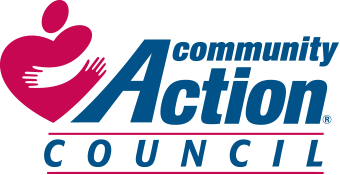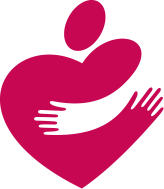Lexington is a city of vast urban growth and prosperity, yet within this growth, there is a lack of fresh and healthy food options that are nutritional and sustainable for families with low income. With the surrounding availability of grocery stores and food markets outside the recognized mile radius set by the USDA, the city of Lexington has been and is currently considered a food desert. A food desert is a location characterized by having families with low income with poor access to transportation and a limited number of food retail locations. Many of the surrounding areas that make up the city, such as South and North Broadway, Transylvania Park, Bell Court, and Woodland Triangle are locations where families with low income have disadvantaged access to nutritional foods.
In place of better options, communities in poverty that lack fresh food markets and groceries are instead forced to rely on gas stations, quick markets, or convenience stores that are predominantly stocked with processed and sugary foods. These establishments contribute to many health issues such as child obesity and a lack of food diversity. Afflicted communities are forced to suffer from the nutritional gap and food insecurity as these establishments act as the only source of easy and reliable food for their families.
On top of this arrangement, there are misconceptions about preparing, acquiring, and even affording healthy foods that have dissuaded many families, who are busy with their difficult day- to-day schedules, from even considering better options for themselves. Of course, these conceptions only contribute to a further lack of education concerning healthy food and diets that would help mend the issues caused by this disparity. But, thankfully with the help of the Community Action Council and the benefits of SNAP (Supplemental Nutrition Assistance Program), a program has been developed to offer a better way for these families to not only break out of this nutritional trap, but also learn how to prepare, educate, and plan healthy food diets from the comfort of their own neighborhood.
Healthy Meals on A Budget
One of Head Start’s family-centered programs, Healthy Meals on a Budget (HMOB), began in 2013 as a general nutrition education initiative for families with low incomes to promote healthy lifestyles by providing workshops on meal prepping and budgeting. In 2016, it expanded by including giveaways for participants, with the giveaways consisting of kitchen equipment and food used during the workshop so families could make meals at home. It expanded again in 2021, offering seven different workshops that would demonstrate three different recipes each month. With its community-based focus, HMOB provides children and families in need with the necessary tools to best prepare affordable, nourishing meals using locally sourced ingredients.
The program focuses on household nutrition management, a complex process that involves many factors beyond just food availability, such as education, food preparation techniques, perceptions of convenience, affordability, desirability, and palatability, as well as family habits and cultural traditions.
HMOB provides targeted guidance and encouragement to participants in navigating Lexington’s local food system, which includes connecting them to fresh and vibrant locally produced foods. Additionally, participants are linked with “buy local” assistance programs, like Kentucky Double Dollars, based on their need level, which can further help them access healthy, affordable foods. The design and delivery of HMOB target children and parents from low-income households to interrupt the cycle of poverty and create unifying nutritional support for the entire family . This is a two-generational approach to healthy food education.
Through Head Start’s early childhood learning, children can positively contribute to the type of food brought into the household by helping in food shopping and preparation, and by sharing their newfound understanding of “healthy food.” However, HMOB recognizes the powerful role parents play in children’s early experiences with food, such as the final say in food purchases,
preparation, and consumption. Like other Head Start initiatives, HMOB works to meet developmental and family needs by offering accessible resources to parents that support family- centered healthy eating habits.
Educational Outreach Opportunities:
HMOB’s educational sessions have taken place in many forms to reach diverse family groups:
Family-Centered: Every session includes direct education in the form of nutrition discussions that break away preconceived notions of healthy foods being more expensive than their junk food counterparts. Families learn from nutrition experts how to increase the variety of produce in their diets, with their meals becoming more centered around a healthy blend of whole grains, seafood, lean meats, low-fat milk, and fresh vegetables and fruit. Water is also heavily emphasized as a key component of bodily hydration. To help with meal preparation, families are given hands-on lessons with interactive cooking demonstrations from published video examples that show healthy eating can be satisfying, affordable, and delicious—regardless of income.
Fatherhood: Two sessions have been conducted for a fatherhood engagement group. Offered is information on nutrition assistance that works in tandem with program support for fathers who are seeking to become more involved in their children’s lives.
Chrysalis House: Two sessions have taken place at Chrysalis House, a residential facility for mothers recovering from substance use disorders and addictions. Through a recent partnership with the Council, Early Head Start services provide these mothers with a rich foundation in child supportive practices that implements a nutritional dietary focus.
Foster Grandparents: One workshop has been adapted for the Foster Grandparent program, which includes senior volunteers who take on an active role in a child’s developmental life. Foster Grandparents provide mentoring and role modeling. They are taught the necessary tools to lead conversations about healthy eating with children from low-income backgrounds.
Spanish Language: One Spanish-only session has been conducted for a Lexington neighborhood with a large Hispanic population. The Council’s Migrant and Seasonal Head Start program serves predominately Hispanic families. Nutrition lessons are made accessible through cultural and linguistic inclusion. Additionally, the food discussed and meals demonstrated are considerate of Hispanic food practices.
Fresh Produce Access
The Council’s Head Start programs are determined to expand access to fresh foods within the districted counties. Part of how the Council’s Head Start program is achieving this goal is through the Mobile Food Market (MFM), a fresh produce initiative that ensures populations living in food deserts can still acquire, cook, and eat nutritious foods. The MFM vehicle brings family nutrition directly to residential areas of need, offering food boxes that include dairy products, fresh fruits and vegetables, canned fruits and vegetables, protein sources, and whole grains. While some products have a longer shelf life, the nutrition team heavily focuses its efforts on providing equal access to fresh produce. Produce is more nutrient-dense when picked at peak ripeness, and protein maintains higher sources of minerals and vitamins when served fresh.
To further engage the public, the MFM promotes additional educational by offering live cooking demonstrations as well as recipe cards with online learning links
The many educational opportunities and food options offered through CAC and Head Start are vital assets to families of low income who need additional assistance. CAC is proud of the work their Head Start program does to decrease food insecurity throughout low-income neighborhoods and help take the first steps in creating a healthier and nutritionally smarter community.
Though Lexington and surrounding areas are considered a food desert, it doesn’t mean the effects have to impact you and your family. Reach out now to stay on top of how you can thrive in such an environment and get access to food and information that can support your needs.
Thank you for reading this blog. We at Transylvania and CAC hope this information can educate and benefit you as you take the first steps towards a healthier lifestyle opportunity for you and your families. We students at Transy appreciate the opportunity from CAC to help in this endeavor.
#TransyTakesAction

